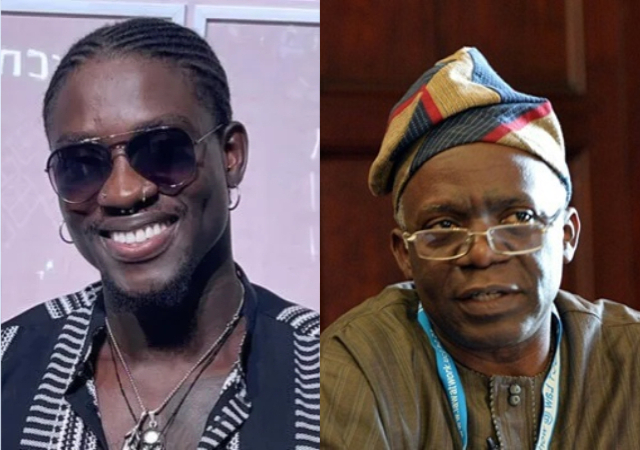
- VeryDarkMan, a social media influencer, seeks leave from the Lagos High Court to appeal a ruling by Justice Matthias Dawodu to stop defamatory video and comments against Femi Falana and Falz.
- A recorded conversation accused them of collecting N10 million from popular crossdresser Idris Okuneye, also known as Bobrisky, to manipulate justice.
- Justice Dawodu stopped social media police from releasing defamatory videos and comments against a senior lawyer and his son pending a suit hearing.
A social media influencer, Martins Otse, known as VeryDarkMan, has submitted an application to the Lagos High Court seeking permission to appeal the decision made by Justice Matthias Dawodu on October 14, 2024. This ruling mandated him to remove a defamatory video and comments directed at Human Rights Activist Femi Falana, SAN, and his son, Folarin, widely recognized as Falz.
The allegations in question stemmed from a recorded conversation, which claimed that they received N10 million from the well-known crossdresser Idris Okuneye, also referred to as Bobrisky, to obstruct the course of justice.
GistLover notes that Justice Dawodu’s ruling also prohibited the self-proclaimed social media police from further releasing, publishing, or disseminating any defamatory content regarding the senior lawyer and his son across all his social media platforms until the hearing of a lawsuit initiated by the pair.
In two distinct motions filed with the court, VeryDarkMan requested an extension of time to seek permission to appeal the court’s ruling.
In his motion, which is based on seven grounds and dated October 18, VeryDarkMan contended that the court’s order was solely reliant on the respondent’s affidavit and, being an interlocutory order, necessitated the court’s approval to exercise his constitutional right to appeal.
He asserted that while the court holds the discretion to grant or deny the leave to appeal, such discretion should be exercised in a manner that is both judicial and judicious.
The influencer further emphasized that a denial from the court would constitute a miscarriage of justice, as the matter raises important legal issues that warrant additional examination.
“A refusal to grant leave may result in the enforcement of a decision that does not reflect a correct application of the law, leading to outcomes that may be detrimental not only to the parties involved but also to the administration of justice as a whole.
“The appellate court’s role in clarifying and, where necessary, correcting trial court decisions is vital in maintaining the integrity of the judicial system,” he said.

